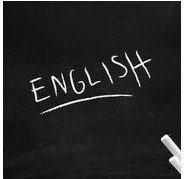Understanding Adjectives: Adjective Phrase Structure and Words That Describe Adjectives
Adjective Phrases
Adjective phrases are defined as phrases in which an adjective functions as the head of the phrase. In the English language, four grammatical forms can appear within an adjective phrase:
- Adverb phrases
- Prepositional phrases
- Verb phrases
- Noun clauses
The following sections define the four grammatical forms that can appear within adjective phrases in English as well as provides examples to illustrate use.
Adverb Phrases
The first grammatical form that can appear in an adjective phrase in English is the adverb phrase. Adverb phrases are phrases with an adverb functioning as the head of the phrase plus any other adverbs functioning as adverb phrase modifiers. Adverb phrases perform the grammatical function of adjective phrase modifier within adjective phrases. For example:
- Adverb Phrase | Adjective
- sickenly | sweet
- tearfully | sad
- seldom | late
- very | smart
Adverb phrases always precede the adjective within an adjective phrase.
Prepositional Phrases
The second grammatical form that can appear in an adjective phrase in English is the prepositional phrase. Prepositions are traditionally defined as “words that indicate relationships between nouns, adjectives, and verbs and other words.” Prepositional phrases are defined as phrases formed by a preposition followed by a prepositional complement. Within the adjective phrase, prepositional phrases perform the grammatical functions of adjective phrase complement and adjective phrase modifier. An adjective phrase complement is defined as a word, phrase, or clause that that completes the meaning of an adjective or adjective phrase. For example:
- Adjective | Prepositional Phrase
- fond | of pumpkin cookies
- happy | for the couple
An adjective phrase modifier is defined as a word, phrase, or clause that describes an adjective or adjective phrase. For example:
- Adjective | Prepositional Phrase
- wet | along the shower
- moldy | under the carpet
Prepositional phrases more frequently function as adjective phrase complements than as adjective phrase modifiers. Prepositional phrases always follow the adjective within an adjective phrase.
Verb Phrases
The third grammatical form that can appear in an adjective phrase in English is the verb phrase. Verbs are traditionally defined as “words that express an action or state.” Verb phrases perform the grammatical function of adjective phrase complement within adjective phrases. Only verbs in the form of infinitives can complete the meanings of adjectives. For example:
- Adjective | Verb Phrase
- afraid | to eat new foods
- glad | to help
- proud | to be a parent
- lucky | to have won the contest
Verb phrases also follow the adjective within an adjective phrase.
Noun Clauses
The fourth grammatical form that can appear in an adjective phrase in English is the noun clause. A noun clause is defined as a dependent clause that performs nominal functions and that consists of a subordinating conjunction followed by a clause. Noun clauses function as adjective phrase complements within adjective phrases. Only finite that- and Ø-clauses can function as adjective phrase complements. For example:
- Adjective | Noun Clause
- sure | the missing ingredient was cinnamon
- hopeful | her boyfriend will propose
- afraid | that the potato salad is rancid
- angry | that the pumpkins were destroyed
Noun clauses also always follow the adjective within an adjective phrase.
Combining Grammatical Forms
The four grammatical forms that can appear within adjective phrases can also appear in combination with other grammatical forms within a single adjective phrase. For example, the following constructions are the eight possible combinations of grammatical forms within adjective phrases in English:
- Adjective
- Adverb Phrase-Adjective
- Adjective-Prepositional Phrase
- Adjective-Verb Phrase
- Adjective-Noun Clause
- Adverb Phrase-Adjective-Prepositional Phrase
- Adverb Phrase-Adjective-Verb Phrase
- Adverb Phrase-Adjective-Noun Clause
For example:
-
Adverb Phrase | Adjective | Prepositional Phrase
-
incredibly | excited | for the new season
-
Adverb Phrase | Adjective | Verb Phrase
-
terribly | sad | to see you go
-
Adverb Phrase | Adjective | Noun Clause
-
rather | upset | that you forgot her birthday
Printable Download
For a printable reference study sheet of the grammatical forms that can appear in adjective phrases in English, please download the supplement to this article The Internal Structure of Adjective Phrases in English Reference Sheet.
